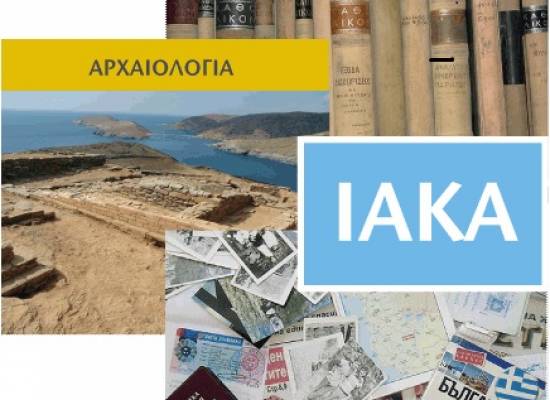Department of History, Archaeology and Social Anthropology

About the Department
The Department of History, Archaeology and Social Anthropology, known in Greek by the acronym "IAKA", is recognized in Greece and abroad as an especially vibrant and innovative intellectual community. Interdisciplinarity is fundamental to the philosophy of undergraduate and graduate education at IAKA, as well as to the faculty's research. The department has also given priority to addressing new technologies as a subject of contemporary humanities and social science research, by incorporating their use in teaching and research.
Part of the School of Humanities of the University of Thessaly, IAKA is based in Volos at the university's seaside campus. Through an established, weekly lecture series and frequent conferences, the department's seminar rooms have become a meeting ground for students, colleagues from other Greek universities, international scholars and the local community.
The department grants a single degree that indicates the discipline in which the student specialized. These disciplines are:
1. History
The history curriculum encompasses all periods and theoretical orientations of Greek and international historical studies. In addition to their training in historical analysis, students are instructed in how to access, manage and evaluate computerized data, as well as produce content for the new technological environments of cultural management fields (education, research centers, museums, publishing houses, cultural policy development, etc.)
2. Archaeology
The archaeology program offers a wide range of courses in archaeology and art history that cover broad subject matters and chronological periods from the Paleolithic era to the post-Byzantine period. The curriculum includes introductory courses for 1st and 2nd year students and advanced courses for students in their 3rd and 4th year of study. Additionally, during the course of their studies, students are introduced to new technologies used in the documentation and mapping of archaeological sites and monuments and are given the opportunity to participate in a number of archaeological field projects conducted by faculty members and the Greek Archaeological Service.
3. Social Anthropology
The anthropology curriculum consists of courses focused on the cross-cultural analysis of social and cultural phenomena, as well as on contemporary cultural theory. The interdisciplinary link with history and archaeology enables the application of anthropological knowledge to the study of local history, analysis of regional social phenomena, the evaluation of initiatives for social intervention that require an understanding of multiculturalism (immigration, racism, etc.), the analysis and development of cultural heritage projects and the transcription of ethnographic data in computerized and audiovisual environments.
The IAKA faculty trains historians, archaeologists and social anthropologists, who are qualified to work in the fields of education, research, and cultural heritage management. Every year approximately 100 new undergraduate students are admitted.
A unique feature of the undergraduate curriculum is the freedom that is given to students to structure their own program, rather than follow a fixed schedule of required courses. Students major in one of three disciplines (history, archaeology, social anthropology), but the ability to take courses in other disciplines encourages interdisciplinary dialogue and experimentation.
